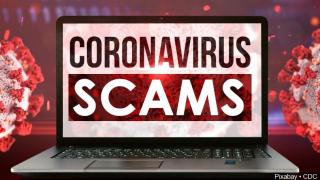New Jersey Attorney General Warns About COVID-19 Testing Scams

New Jersey Attorney General Grewal has issued a statement warning New Jerseyans to beware of COVID-19 testing scams. As testing for the COVID-19 virus and for COVID-19 antibodies continue to become more widely available, the Attorney General and the Division of Consumer Affairs is warning consumers to beware of false or misleading claims in the sale or administration of COVID-19 tests and COVID-19 antibody tests, and calls with individuals posing as contact tracers looking for people to provide personal and financial information.
Consumers should beware of outright scams connected to the sale of COVID-19 tests. Nationwide, individuals and entities are taking advantage of the burgeoning testing market by selling tests that haven’t been approved by the FDA and may not provide accurate results; going door-to-door and performing fake tests for money; and by purporting to offer free virus test kits in an effort to collect consumers' personal and health insurance information.
There are also reports that scammers posing as contact tracers are texting New Jersey residents with messages saying they came in contact with someone who had COVID-19. The text messages ask people to follow links and then try to get them to reveal their personal information. The DCA says that consumers should be wary of anyone advertising tests for sales via email, on social media, or over the phone.
Legitimate contact tracers will never ask for social security numbers, bank account or credit card information, or insurance numbers over the phone. They don’t need that information. The Attorney General provided tips to avoid COVID-19 testing scams:
• Want a test? Talk to your doctor or pharmacist. If you want an antibody test, reach out to your healthcare provider or local pharmacy. They can help you figure out if the test will be covered by insurance and where to find a legitimate clinic, and can ensure that you understand what the results mean.
• Do research before buying. Scammers put pressure on people to buy or commit without giving them time to do further research. Before you agree to anything, do some investigating. Check the FDA website to verify claims that a test has have been approved by the FDA or has received an emergency use authorization issued by the FDA.
• Understand your options. The Center for Disease Control and Prevention has a detailed guide to testing for COVID-19. Understand the different tests available and what you need.
• Never share your personal information with strangers. Only make purchases and share your personal information with people and companies you know and trust.
• Know what a legitimate contact tracing interview entails. To learn more about the contact tracing process, go to the NJ Department of Health’s Contact Tracing for COVID-19 webpage.
How to Find a Testing Location in New Jersey
Governor Murphy reminded New Jersey residents that people are encouraged to get COVID-19 testing, particularly if they have symptoms or have attended a large gathering like the recent protests that have taken place in many places in the State. There are hundreds of testing locations around the state, including drive through pharmacy locations. New Jerseyans looking for a site can find a location and pertinent information at COVID19.nj.gov/testing.

